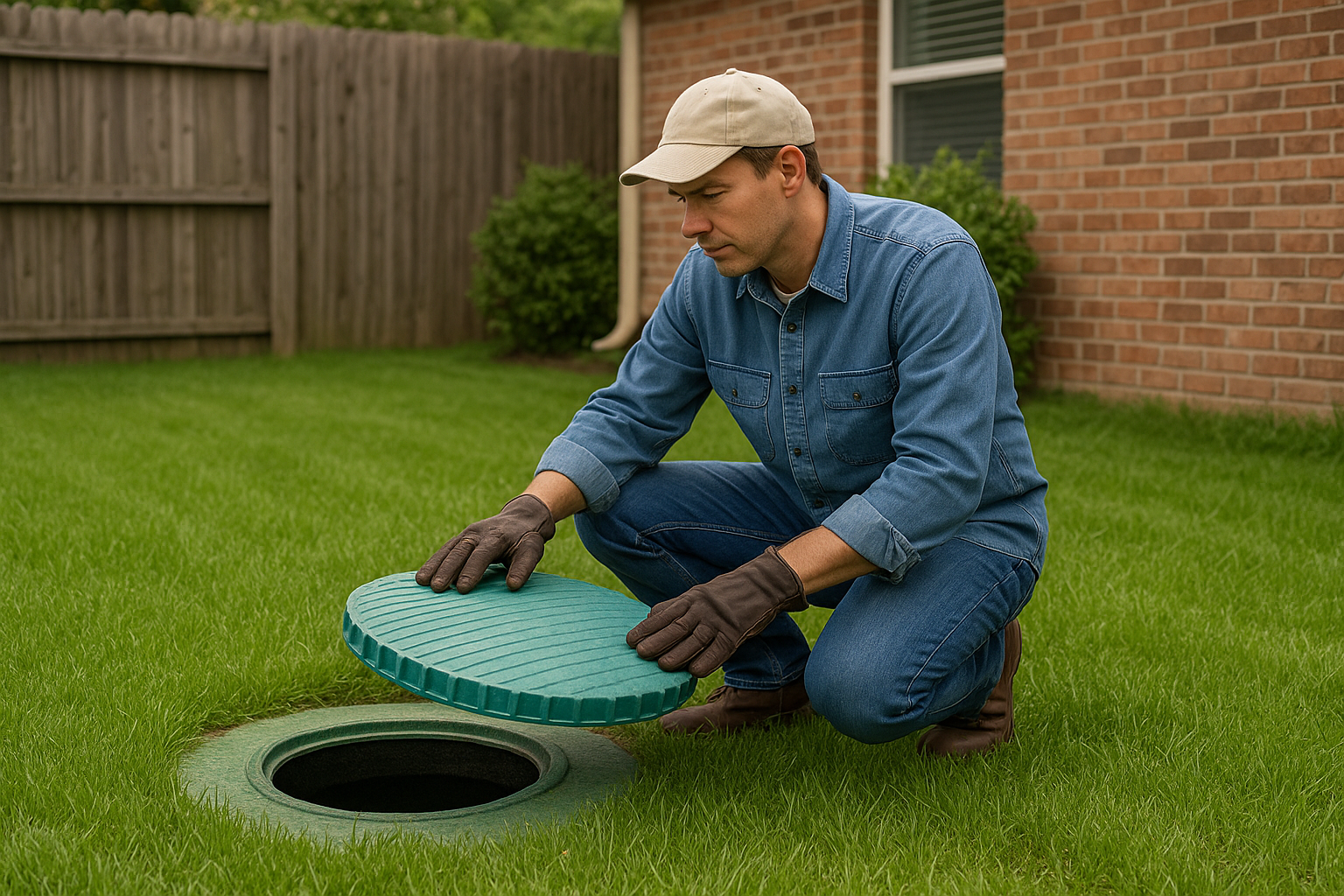Ever get that sinking feeling when you realize it’s time to schedule another septic pump-out? It’s not just the cost. It’s the coordination, the disruption, and the worry that something bigger might be wrong. The good news is that with smart septic system maintenance hacks, you can safely extend the time between pump-outs while keeping your system healthy and reliable.
Think of your septic system as a living ecosystem. When you follow consistent septic system maintenance habits, small actions done regularly, the system processes waste efficiently, odors disappear, and emergencies become rare. Ignore the basics, and sludge builds up faster, the drain field struggles, and expensive repairs follow.
This guide shares practical, field-tested septic system maintenance tips homeowners use to reduce pumping frequency without gambling with system failure. You’ll learn how to maintain a septic system the right way, how daily choices affect performance, and how to protect the most expensive component, the drain field, so your system lasts for decades.
The Basics: Why These Hacks Work
A residential septic system treats wastewater onsite. Waste enters the tank, solids settle as sludge, oils float as scum, and clarified liquid exits to the drain field where soil microbes finish the job. The goal of septic system upkeep is simple:
- Keep solids in the tank
- Keep liquids moving evenly
- Protect soil absorption in the drain field
Pump-outs are triggered by sludge accumulation and hydraulic overload. Reduce either and you safely extend intervals. The hacks below focus on slowing sludge growth, preventing water surges, and protecting the drain field.
Hack 1: Master Water Flow (Hydraulics Matter)
Water overload is the fastest way to shorten pump intervals. Even a properly sized tank can push solids toward the outlet during surges.
Do this instead:
- Space laundry across the week
- Fix running toilets and leaky faucets immediately
- Install low-flow showerheads and toilets
- Run dishwashers only when full
Why it works: Steady flow lets solids settle. Surges stir sludge and push it toward the outlet, which stresses filters and drain fields.
Hack 2: Protect the Bacterial Workforce
Your tank’s bacteria do the heavy lifting. Killing them speeds sludge buildup.
Best practices for caring for a septic system:
- Use septic-safe cleaners in moderation
- Avoid dumping bleach, solvents, or antibacterial products
- Never flush wipes, floss, or paper towels
Myth to skip: Routine additives rarely reduce solids meaningfully. Healthy habits beat bottles.
Hack 3: Install an Outlet Filter (Cheap Insurance)
An outlet filter catches fine solids before they reach the drain field.
Why it’s a top septic tank maintenance tip:
- Dramatically reduces drain field clogging
- Makes pump-outs more effective
- Costs little compared to drain field repairs
If your system lacks one, ask about tank locating and outlet baffle replacement to add or upgrade protection.
Hack 4: Make Access Easy With Risers
Buried lids discourage inspections. Above-grade access encourages them.
Benefits of risers:
- Faster, cheaper service
- No digging damage to landscaping
- Easier visual checks
Consider professional septic risers and lid installation to make routine upkeep painless.
Hack 5: Treat the Drain Field Like a No-Go Zone
The drain field is sacred ground. Compaction and roots are silent killers.
Septic system upkeep rules:
- No vehicles, sheds, or heavy equipment
- Divert roof drains and sump pumps away
- Plant only shallow-rooted grass
- Avoid over-irrigation
Why it works: Soil needs air. Compaction suffocates microbes and blocks infiltration, leading to backups and wet yards.
Hack 6: Right-Size Habits to Tank Capacity
Two homes with identical tanks can have very different pump schedules.
Adjust habits if you have:
- A garbage disposal (use sparingly)
- A large household (tighten water discipline)
- Older plumbing (fix leaks aggressively)
Tracking usage and adjusting habits is residential septic tank maintenance at its most practical.
Hack 7: Schedule Smart Inspections (Not Just Pump-Outs)
Inspections catch problems before they snowball.
A simple maintenance of septic system plan:
- Seasonal visual checks for odors or wet spots
- Outlet filter rinse as recommended
- Pump-out every 3–5 years (or by sludge depth)
Pair inspections with septic tank cleaning and pumping to save money long term.
Hack 8: Manage Pumps and Lift Stations Proactively
If your system uses pumps, small issues escalate fast.
Maintenance essentials:
- Test float switches twice yearly
- Keep alarms functional
- Schedule routine lift station pumping if applicable
Failing pumps cause backups and emergency pump-outs that are often avoidable.
Hack 9: Keep a One-Page System Map
Document:
- Tank and lid locations
- Drain field boundaries
- Pump and alarm panels
- Service dates and findings
Tape it inside your utility panel. This single page prevents costly mistakes during landscaping, repairs, or emergencies.
Hack 10: Time Service Before Stress Seasons
Wet seasons and holidays strain systems.
Plan ahead:
- Pump before prolonged rain if sludge is near limits
- Inspect before hosting large gatherings
- Winterize shallow components where applicable
This foresight is the essence of smart septic upkeep.
Why These Hacks Pay Off
- Fewer pump-outs: Slower sludge growth and steadier flow
- Lower costs: Prevention beats repairs
- Less stress: Fewer odors, alarms, and surprises
- Longer lifespan: Drain fields last decades when protected
- Environmental protection: Cleaner groundwater and healthier soil
Common Challenges and How to Beat Them
- “I forget to schedule.” Set calendar reminders and keep records.
- “Rules are confusing.” Stick to fundamentals: water discipline, no wipes, protect the field.
- “Maintenance costs money.” True, but far less than drain field replacement.
- “I’m not sure who to call.” Build a relationship with a local provider and consider predictable care plans.
A Simple Septic System Maintenance Checklist
Weekly
- Space laundry
- Watch for leaks
Monthly
- Walk the drain field
- Note odors or wet spots
Seasonal
- Inspect risers and lids
- Check alarms and pumps
- Redirect runoff if needed
Every 3–5 Years
- Professional pump-out and inspection
For transactions or peace of mind, schedule real estate septic system inspections with full reports.
The Future of Septic Care
Expect smarter sensors, better effluent filters, predictive maintenance, and more eco-friendly fixtures. These trends make how to maintain a septic system less reactive and more routine.
Put It All Together
You don’t need expensive gadgets or risky shortcuts. These septic system maintenance hacks rely on smart habits that safely extend pump intervals, protect the drain field, and keep your system running quietly in the background.
Start with one change this week, space laundry, fix a leak, or check a lid, and build from there. Small, consistent actions add up to years of reliable performance, lower costs, and peace of mind.






